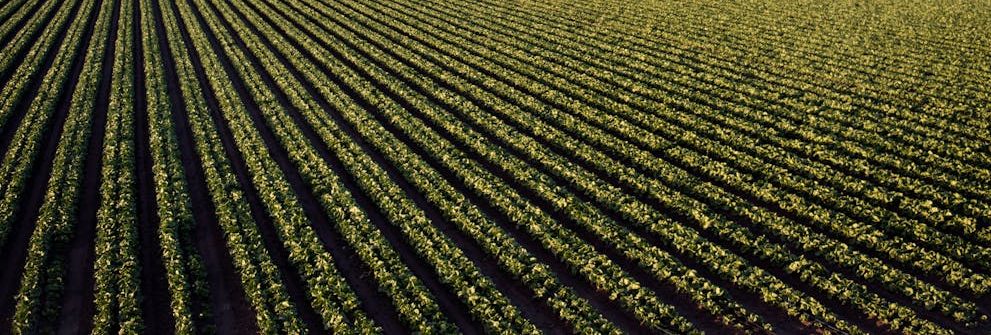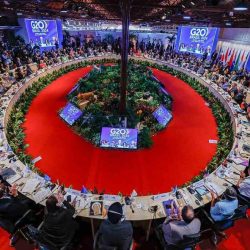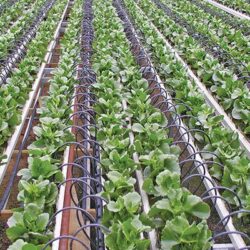Kaduna, Nigeria: Defying a scorching sun and the first rains in over six months – a symbolic downpour, perhaps – Nigeria this week embarked on an ambitious journey to transform its long-neglected food and agriculture sector. The groundbreaking ceremony for the first of eight Special Agro-Industrial Processing Zones (SAPZ) in Kaduna State marked the tangible beginning of a $510 million project, bankrolled by the African Development Bank (AfDB) and its development partners.
Thousands of residents bore witness as Vice President Kashim Shettima, AfDB President Dr Akinwumi Adesina, and Kaduna Governor Uba Sani jointly turned the sod, igniting hopes for a future where Nigeria feeds itself and becomes a breadbasket for the continent.
The SAPZ initiative aims to drag Nigeria’s rural heartlands into the 21st century, transforming them into vibrant economic hubs that will finally break the cycle of reliance on imported food. The ambitious plan envisions boosting national food security, cultivating crops for the lucrative export market, and generating millions of much-needed jobs for Nigeria’s burgeoning youth population.
Vice President Shettima, visibly enthused, declared the SAPZ program a “national imperative” under President Bola Ahmed Tinubu. “We are not merely breaking ground,” he asserted. “We are building the infrastructure to feed our people, empower our youth, and fulfil the boundless promise of our nation. This is about the resilience of our farmers, the brilliance of our entrepreneurs, and our resolve to craft a future that thrives, guided by the African Development Bank’s leadership. The world races toward innovation. Nigeria will lead, not follow, with this zone as our foundation.”
Shettima also paid a personal tribute to Dr Adesina, acknowledging his 15-year unwavering commitment to the vision. “Dr Adesina has been pursuing this dream for the past fifteen years, and dreams when persistent are capable of turning into realities. He’s simply one of our best, pregnant with ideas, and he’s someone with whom I can pay to spend time,” the Vice President quipped.
For Dr Adesina, the groundbreaking was the culmination of a long-cherished ambition, dating back to his tenure as Nigeria’s Agriculture Minister. “I never stopped dreaming that the day would come when Nigeria would have the Staple Crop Processing Zones to change the fortunes of farmers, revive the rural areas and turn Nigeria into an agricultural processing powerhouse,” he declared, his voice filled with emotion. “Now, 10 years later, the dream for the Staple Crop Processing Zones is alive in Nigeria, finally, now as Special Agro-Industrial Processing Zones. What a great day for Nigeria! So, you can understand my level of excitement and elation today.”
To fuel this agricultural revolution across Africa, the AfDB has committed over $934 million towards the development of SAPZs and successfully mobilized an additional $938 million from partners, including the Islamic Development Bank and the International Fund for Agriculture Development (IFAD).
Adesina laid out five crucial pillars for the success of Nigeria’s SAPZs: unwavering political will at the highest levels, seamless cross-ministerial cooperation, consistent government policies, the legislative codification of the SAPZ program through an Act of Parliament establishing an SAPZ Authority, and robust infrastructure development.
Kaduna Governor Senator Uba Sani painted a picture of his state’s commitment to agriculture, revealing a dramatic increase in budgetary allocation. “Over the past two years, we have backed our commitment with unprecedented investment,” he stated, highlighting a surge from a paltry 1.4 billion Naira in the inherited budget to a proposed 74.2 billion Naira for agriculture in 2025, representing over 10% of the state’s expenditure.
Kaduna, a leading producer of ginger, maize, and tomatoes, and a significant player in wheat and livestock, stands to be a prime beneficiary of the SAPZ initiative.
The financial muscle behind the project sees the AfDB investing $200 million in this initial phase, with the Islamic Development Bank contributing $150 million, IFAD $100 million, and the Green Climate Fund adding $60 million.
Nigeria’s Minister of Agriculture and Food Security, Senator Abubakar Kyari, hailed the project as “a pivotal leap, harnessing private capital to enrich rural life,” while the Emir of Zazzau, Ambassador Ahmed Nuhu Bamalli, expressed profound gratitude for the “Bank-led project that honours our people.”
For farmers like Hannafu Emmanuel, the promise of the SAPZ is tangible. “We are happy today, because the SAPZ has promised to provide quality seedlings and other inputs. They will also buy from us as farmers,” he said, echoing the hopes of countless smallholders across the nation.
The Nigerian SAPZs are part of a broader continental initiative, with similar projects underway in 27 sites across 11 African nations. As the bulldozers begin their work in Kaduna, a new chapter in Nigeria’s agricultural story is being written, one that promises to cultivate not just crops, but also prosperity and food security for generations to come.




